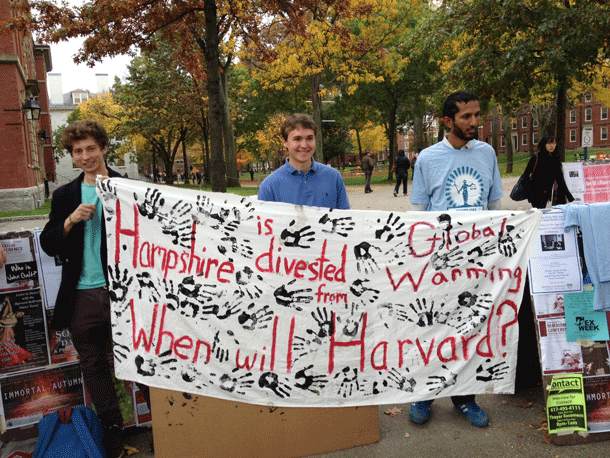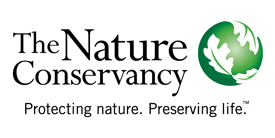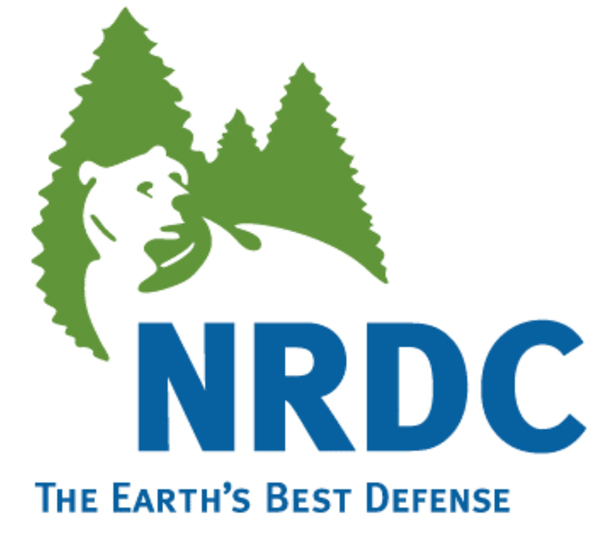Environmental Organizations Under Pressure to Divest Fossil Fuel Investments
Air Date: Week of May 10, 2013

Harvard student demonstrating for divestment from fossil fuels.
In response to a national movement, colleges and cities around the country are moving their endowments out of fossil fuel stocks. But Dan Apfel, executive director of the Responsible Endowments Coalition tells host Steve Curwood that some big environmental organizations have yet to follow suit.
Transcript
CURWOOD: It’s Living on Earth, I'm Steve Curwood. The movement to divest from fossil fuels is catching fire. Four universities and 10 US cities, including Seattle and San Francisco, have announced plans to divest their holdings in corporations that profit from the extraction of global warming fuels, especially oil and coal. But it appears most big environmental organizations have yet to follow suit. Groups including The Nature Conservancy, the World Wildlife Fund, and Conservation International invest part of their endowments in the very fossil fuel industries that are linked to climate change. Dan Apfel is Executive Director of the Responsible Endowments Coalition and joins us from New York. Dan Apfel, welcome to Living on Earth.
APFEL: Thanks for having me, Steve.
CURWOOD: It might come as a big surprise that some of the environmental organizations are investing in the fossil fuel industry. Can you explain how exactly does this process work?
APFEL: Well an organization like The Nature Conservancy, which has a little over a billion dollars, has an endowment and other investments that it raises from donations over time and from the growth of their investments. They typically work with an investment advisor or consultant to help them pick investments that are generally in the stock market and also in private equities which are privately held companies. And they try and make returns in order that they have more money to implement their mission in the future.
CURWOOD: How much money are we talking about here?

The World Wildlife Fund seeks to protect and preserve the world’s biodiversity, but had yet to respond to Living on Earth’s inquiries about fossil fuel divestment at the time our program was recorded. (photo: World Wildlife Fund)
APFEL: It adds up to be maybe $10 billion total.Colleges and universities have about $400 billion, and US pension funds have on the order of something like $10 trillion.
CURWOOD: How much is invested by green groups in fossil fuels?
APFEL: I don’t have an exact number, but fossil fuel stocks make up about 13 percent of the US and global equity market stock market. So probably around there, 13, 14, 15 percent of their holdings.

(photo: Conservation International.)
Conservation International had yet to respond to Living on Earth’s inquiries about fossil
fuel divestment at the time our program was recorded.
CURWOOD: Now there are some groups like The Nature Conservancy who openly accept funds from companies like BP, Chevron, and Exxon. So is investing in those same companies a different issue in your mind?
APFEL: You know, it is a little bit different because they’re taking money that has been made in the past. Investing in these companies is actually betting these companies are going to succeed in the future. All investors want their investments to perform well, but for these investments to perform well, that really means that more fossil fuels need to get burned, and that’s really inimical to the mission of the environmental organization.
CURWOOD: Now, in all likelihood, a typical person listening to this, if they have investments in a mutual fund, is, well, probably investing in fossil fuels and might not even be aware of it. How possible is it that these green groups don’t really know where their investment dollar is going?
APFEL: Organizations with large endowments, with millions of dollars, typically have an understanding of where their investment dollars are. And we really believe that once you know you have the obligation to do something - and I think most of these organizations already knew, but if they didn’t know before this divestment campaign, they definitely know now.

The Nature Conservancy was not able to provide a response by the time Living on Earth went to air. (photo: The Nature Conservancy.)
CURWOOD: So, now that they are aware, what can these organizations, or for that matter the average person for that matter, do to divest from the fossil fuel industry?
APFEL: Yes. So the first thing that anyone needs to do is, like you said, find out. I think for an individual, it’s really important to look and see what investments you have. So you want to go out and find managers that don’t invest in fossil fuels and ideally are investing in the future. So, really are investing in the solutions to climate change, to mitigate climate change. We’re actually encouraging colleges and universities to invest five percent of their endowments in solutions to climate change.
CURWOOD: What are the core arguments that endowments should divest from fossil fuels, in your view?
APFEL: There’s a few different arguments for endowments to divest from fossil fuels - and I would also say invest in climate solutions. The first is that it’s really the most powerful statement an investor can make with their money. But there’s also a financial angle. Fossil fuel companies are valued based on the amount of proven reserves they have on the ground. But we can’t actually afford to burn those reserves, because if we do, we know for a fact that the global temperature will rise more than two degrees, and that they can actually only burn 20 percent of those reserves. Either we’re going to burn those reserves and global temperatures are going to rise way more than two degrees, or we’re going to have to keep them in the ground, and that means that fossil fuel companies are overvalued.

The Sierra Club says it has divested from its fossil fuel interests and the Sierra Club Foundation is in the process of doing the same. (photo: Sierra Club.)
CURWOOD: So in other words, you’re saying, divesting in fossil fuels, in your perspective, is not only the right thing to do to help protect the planet, but also the right thing to do to protect the portfolio, which you forecast will be devalued by the regulation of carbon in the years going ahead.
APFEL: Exactly. You know what...the fossil fuel companies have to have their values decline. Therefore, their value in our portfolio has to decline if we have any chance at keeping global warming below the two degree temperature rise. It’s also an important reason for investing in climate solutions. Those are the companies that are going to be profitable if we’re making a transition to a low carbon economy.

Natural Resources Defense Council is a grassroots environmental activism group that does note directly invest in extractiveindustries, but is still reviewing its portfolio regarding any indirect fossil fuel investments, such as ETFs, index funds and private equity limited partnerships. (photo: Natural Resources Defense Council.)
CURWOOD: And I guess your view is if we don’t make the transition, everything else is academic?
APFEL: Yes. You know, what I say is if we can’t invest in our future, we really shouldn’t be investing at all.
CURWOOD: Dan Apfel is Executive Director of the Responsible Endowments Coalition. Thanks so much for taking this time with me today, Dan.
APFEL: My pleasure. Thanks for having me.
CURWOOD: We contacted The Nature Conservancy, the World Wildlife Fund, Conservation International, The Sierra Club and NRDC for comment. The Sierra Club says it is divesting, and NRDC says it's reviewing all its holdings. The Nature Conservancy said they had nobody available to comment. And as we go to air, we've not heard from WWF or Conservation International.
Links
Living on Earth wants to hear from you!
Living on Earth
62 Calef Highway, Suite 212
Lee, NH 03861
Telephone: 617-287-4121
E-mail: comments@loe.org
Newsletter [Click here]
Donate to Living on Earth!
Living on Earth is an independent media program and relies entirely on contributions from listeners and institutions supporting public service. Please donate now to preserve an independent environmental voice.
NewsletterLiving on Earth offers a weekly delivery of the show's rundown to your mailbox. Sign up for our newsletter today!
 Sailors For The Sea: Be the change you want to sea.
Sailors For The Sea: Be the change you want to sea.
 The Grantham Foundation for the Protection of the Environment: Committed to protecting and improving the health of the global environment.
The Grantham Foundation for the Protection of the Environment: Committed to protecting and improving the health of the global environment.
 Contribute to Living on Earth and receive, as our gift to you, an archival print of one of Mark Seth Lender's extraordinary wildlife photographs. Follow the link to see Mark's current collection of photographs.
Contribute to Living on Earth and receive, as our gift to you, an archival print of one of Mark Seth Lender's extraordinary wildlife photographs. Follow the link to see Mark's current collection of photographs.
 Buy a signed copy of Mark Seth Lender's book Smeagull the Seagull & support Living on Earth
Buy a signed copy of Mark Seth Lender's book Smeagull the Seagull & support Living on Earth

